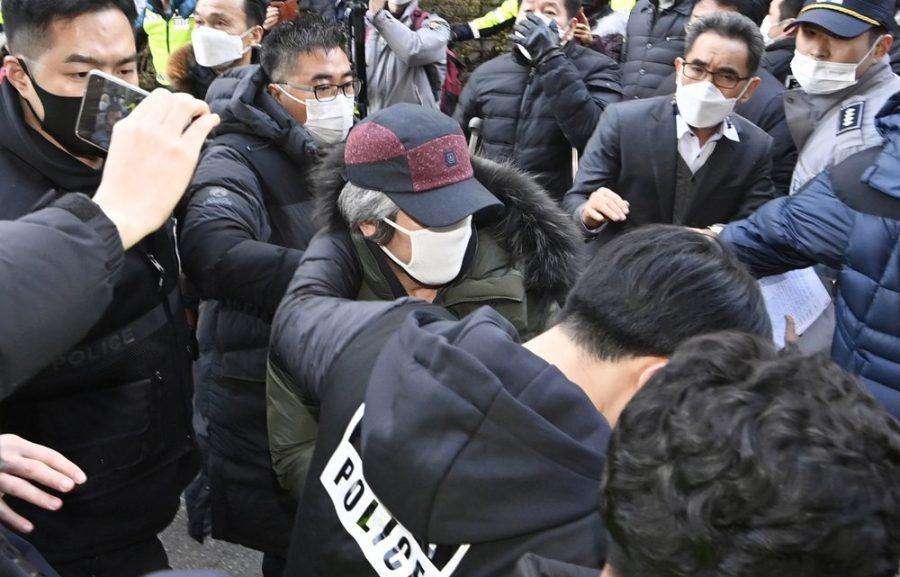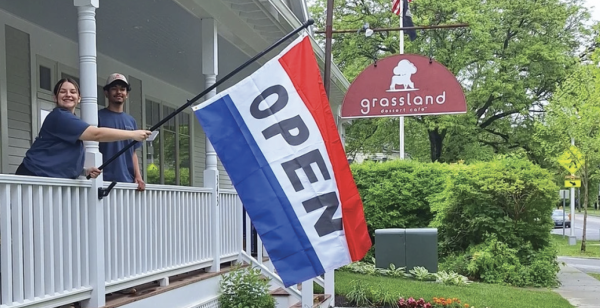The Case of Cho Doo Soon: An Unfinished Trial
Cho Doo Soon, one of the most abhorred criminals in Korea, was released on December 12, 2020.
I felt an uneasy tension in the atmosphere waking up and turning on the television. Leaving for a meeting, I saw mothers urging their kids to come home straight after school, and the subways, usually completely silent, were occupied by a cacophony of concerned voices. By the afternoon, the situation had morphed into utter chaos.
Cho Doo Soon, one of the most abhorred criminals in Korea, was released on December 12, 2020, after serving in prison for 12 years. His release triggered numerous demonstrations and death threats against him. Approximately 150 YouTubers and online streamers visit Cho’s apartment daily, causing extreme chaos.
Cho Doo Soon is responsible for sexually assaulting an eight-year-old girl in the bathroom of a church in Ansan, Gyeonggi Province. Due to the brutality of his actions, the case remained contentious throughout the trial process and for years following the case. The high profile case revealed serious flaws in the Korean justice system’s lenient treatment of predators in sexual offense cases. Previously, the justice system favored the rights of the perpetrator. Today, the Cho Doo Soon case is considered to be a turning point for changes in laws that focus on the rights of the victims.
Throughout this case, increased public attention was directed towards how much the girl had recovered from the incident, how she was living, and whether she would be affected by Cho Doo Soon’s release. Cho’s release received widespread media coverage prior to the actual event and raised concern for the victim.
In the past, loopholes like antragsdelikt had been used by perpetrators to gain advantages in the system. Antragsdelikt refers to an offense that cannot be prosecuted without complaint by the victim. In the Cho Doo Soon case, the victim was called to court and questioned if she wanted to punish the perpetrator. This law was revoked in regards to sexual offenses in 2013. Chief Justice Yang stated, “Previously we understood sexual assault as a physical and mental crime against an individual woman,” implying that with the ban the judiciary ruled sexual assault as a crime against society.
Additionally, the process of testifying has changed to prevent secondary victimization. The girl had to testify multiple times in trial in front of Cho when she was not physically fully recovered from the case, furthering her trauma. Her father filed a claim for damages against the nation, resulting in the creation of a one-stop center that records the testimony of sexual assault victims once instead of requiring the victim to testify in court multiple times.
Most recently, the National Assembly passed the Cho Doo Soon prevention law, which mandates the disclosure of sex offenders’ public information, including the specific home address, and bans those who were convicted of sexual violence from being within the parameters of a kindergarten.
Yet, there are issues regarding the case that still remain unresolved today. Joo Chi Gam Hyung, a law stating that substance abuse can be used as a factor to reduce sentencing, played an active role in reducing Cho’s sentence. Since Cho had 17 prior offenses and had inflicted severe trauma on the victim, he initially received a life sentence. However, the situation changed dramatically in the second trial. Based on the victim’s testimony that she smelled alcohol on him, the court handled the case as rape committed under the influence of alcohol, mitigating the final sentence to 12 years in prison. The prosecution did not file an appeal. With Cho’s release once again sparking awareness, an online petition for the ban of Joo Chi Gam Hyung received 210,000 signatures.
While it is clear that the controversies this case raised have contributed to a significant shift in the legal system, the modified laws and policies do not apply to this case. Despite a petition on the Blue House website with more than 600,000 signatures, a retrial has been refused by the government this month, as the Constitutional Law prohibits double jeopardy.
In an interview with BBC last December, the father stated, “Time has passed, but nothing has changed. [The government] still thinks the damage is solely the victim’s responsibility,” adding that to allow Cho Doo Soon to return to Ansan shows “the government has not prepared countermeasures [meanwhile Cho imprisoned].” As Cho’s house is less than one kilometer from the victim’s house, her family was forced to move despite the risk of revealing her identity through their decision. In regards to this, he stated “[We] didn’t want to show the victim running away, but we decided to move as a message to the government.”
While the widespread media coverage and public outrage have subsided, those who live in Ansan are still directly affected by the case. Nearby schools have started safety education programs, distributing “Ansan whistles” to students, and warning students about strangers. With the ongoing tension, it is hard to see how events will play out. One thing, however, is certain: the action taken in response to this case will impact how the Korean justice system proceeds in the future.






